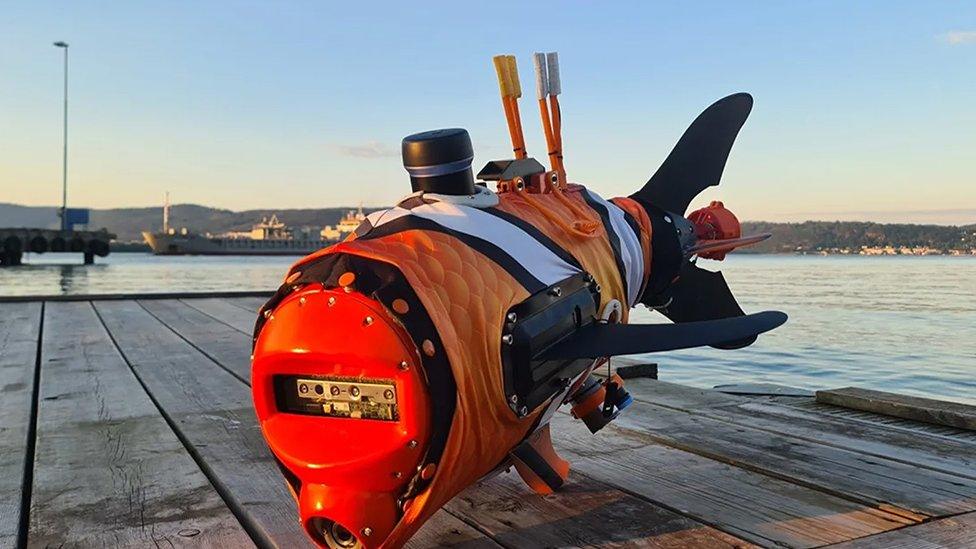Climate change: Could robot clown fish help our oceans?
- Published
- comments

Scientists have developed a robot fish that will monitor the seas to look for signs of climate change and pollution.
Researchers at the technology company Aquaai have created a fish-drone - shaped and coloured like a clownfish.
The robot will swim around - looking like a very large Nemo - and send data back to scientists to study.
The creators behind the robot say it's important that we make drones like this that don't disrupt the natural habitat.
How will the robot fish work?
Check out the robot clown fish in action
With robot fins and a tail, the clown fish will swim around and test different areas of the water.
It's a lot bigger than your average clownfish, however. The standard robot is going to be around 1.3 metres long - this is to store all the measuring devices. It will be powered by batteries to help it 'just keep swimming'.
Simeon Pieterkosky - the person behind the robot fish - actually used to make robot creatures for films.
He said he was inspired by his daughter to make this ocean-monitoring fish when she learned about how climate change was impacting our seas.
One of the things it will measure is oxygen levels in the water. Fish and other sea creatures need oxygen in the water to survive - like we do in the air.
Pollution and climate change can make it harder for some sea creatures to get oxygen from the water.
Why do the oceans need help?
Our Changing Planet: How scientists are helping coral
The ocean's temperature is rising all around the world due to climate change.
This is because of something called the greenhouse effect. When we burn fossil fuels like oil, coal, and gas, they release a chemical called carbon dioxide, which traps the suns rays in our atmosphere for longer than we're meant to have them.
The Earth heats up - and so do our oceans.
All sorts of creatures live in our ocean, from the giant sharks to the tiny fish. Here's a oceanic whitetip shark, alongside some pilot fish
Oceans are home to millions of different creatures, all with different habitats and feeding habits. When the sea's temperature changes, it makes it harder for some creatures to survive, find food, and continue breeding.
Pollution is also having an impact. When we release waste or rubbish into the sea, it can harm sea creatures and make it difficult for some marine plants to grow.
There's currently lots of plans to look after the seas and help marine animals during climate change - you can read about one project happening in Cornwall, here.
